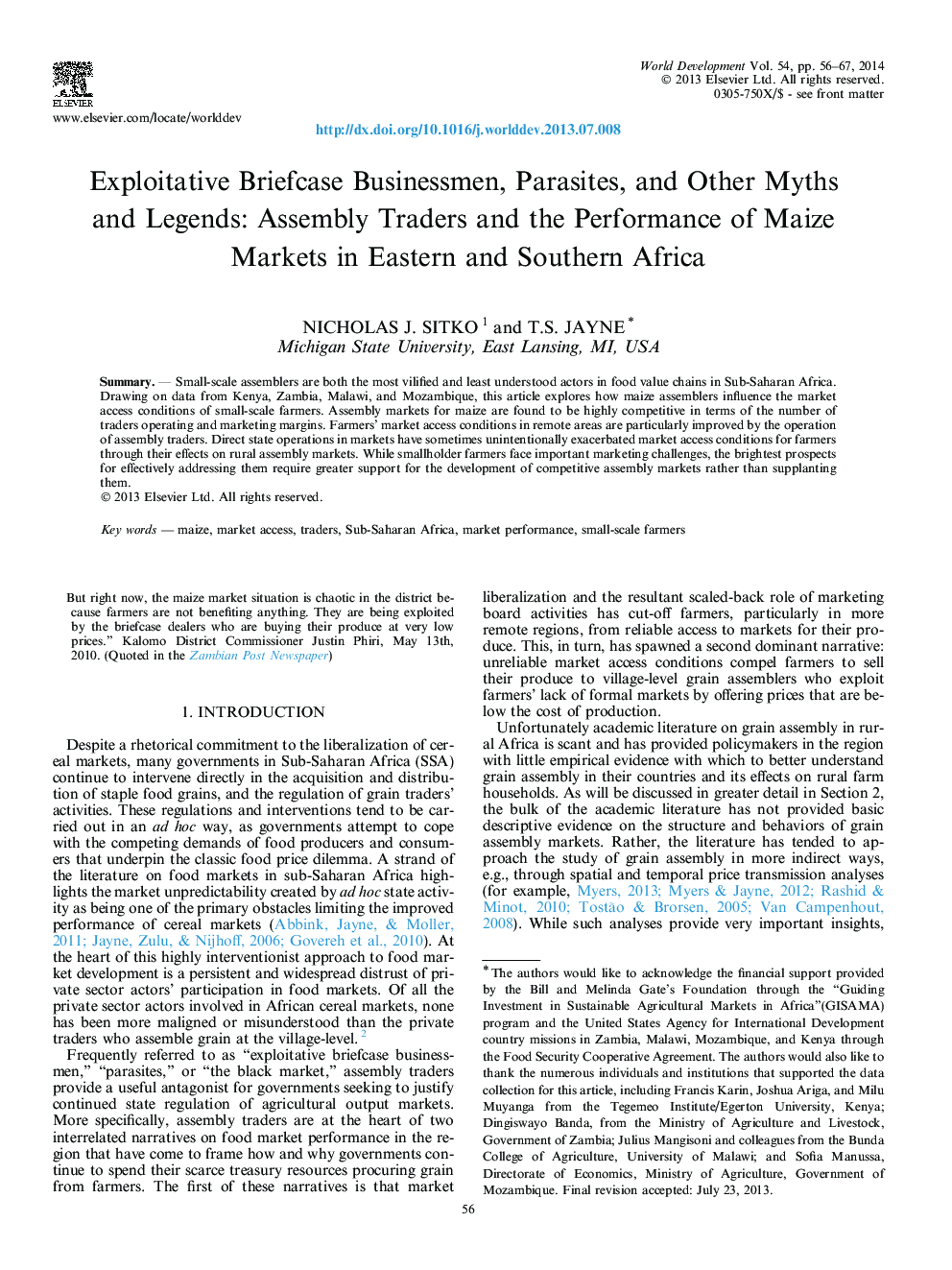| Article ID | Journal | Published Year | Pages | File Type |
|---|---|---|---|---|
| 7395229 | World Development | 2014 | 12 Pages |
Abstract
Small-scale assemblers are both the most vilified and least understood actors in food value chains in Sub-Saharan Africa. Drawing on data from Kenya, Zambia, Malawi, and Mozambique, this article explores how maize assemblers influence the market access conditions of small-scale farmers. Assembly markets for maize are found to be highly competitive in terms of the number of traders operating and marketing margins. Farmers' market access conditions in remote areas are particularly improved by the operation of assembly traders. Direct state operations in markets have sometimes unintentionally exacerbated market access conditions for farmers through their effects on rural assembly markets. While smallholder farmers face important marketing challenges, the brightest prospects for effectively addressing them require greater support for the development of competitive assembly markets rather than supplanting them.
Related Topics
Social Sciences and Humanities
Economics, Econometrics and Finance
Economics and Econometrics
Authors
Nicholas J. Sitko, T.S. Jayne,
